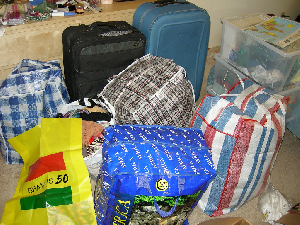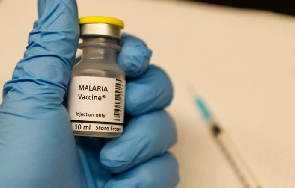Business News of Sunday, 12 April 2020
Source: bbc.com
Coronavirus: Air travel expected to face continued turbulence - IATA
The hit to aviation could be as high as 25 million jobs, according to the airlines' global grouping, and at the current rate of burning through cash reserves, that impact could be felt soon.
It is not just that airlines are burning through cash reserves and some won't survive - even the strong, starting with Lufthansa, are preparing for a very different future to the recent past.
Many dependent businesses lose out if flying does, from international tourism hotels to baggage handlers. But at least cargo specialists are doing well, while most of the world's airliners are grounded.
"There are no words that can adequately describe how deeply this crisis is impacting aviation." So said the boss of the International Air Transport Association (IATA).
Where Alexandre de Juniac could find words, he wasn't mincing them, and he also had numbers.
Between April and June, "some $61bn could disappear from cash reserves. Demand is in free-fall. Worldwide, it's down 70% compared to last year: 90% in Europe. And it could get even worse".
The industry reckons 65 million jobs are linked to aviation: "Our estimation is that some 25 million people's jobs are at risk until the aviation sector is functioning again," he continued, in a briefing on Tuesday. "Twenty-five million people is equal to the entire population of Australia. It is equal to the entire labour force of Italy. The scale of the economic impact is enormous."
You won't be surprised to learn he was looking for bailout from governments - lots of bailouts from lots of governments: direct financial support, loans, loan guarantees, support for corporate bonds, tax relief, deferred air traffic control costs, at which Eurocontrol helped out on Tuesday.
It is estimated that at least 8,500 aircraft are currently parked. Only around quarter of the global capacity is in operation. That's not only a lot of asset value, and leasehold bills, sitting doing nothing. Mechanically, planes don't like being idle either. It's good for them to keep moving.
If airlines can get through the cash crisis, the next question is how to get going again. And the IATA boss doesn't want to leave that to chance: "We do not expect to re-open this same industry we closed a few weeks ago."
It will require co-ordination with regulators, for licensing and air worthiness certificates. It will also need co-ordination with health authorities around the world, who will want to shut down the risk of re-infection.
The authorities have been notable for the failure to co-ordinate so far, and it looks like airlines that have to deal with the consequences of that continuing as travel opens up again.












